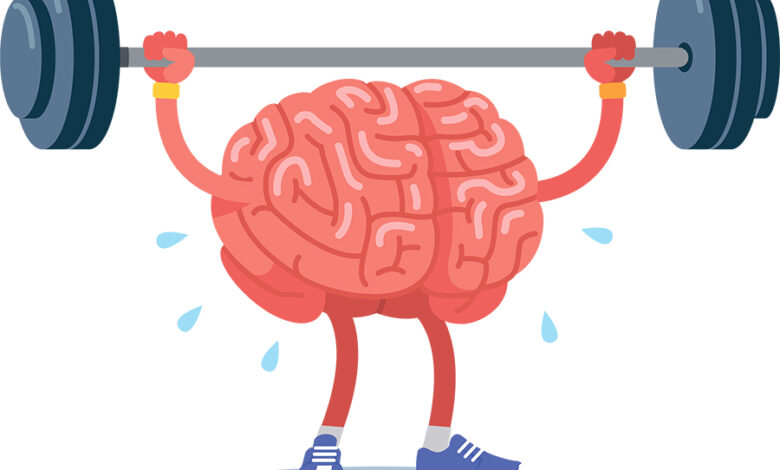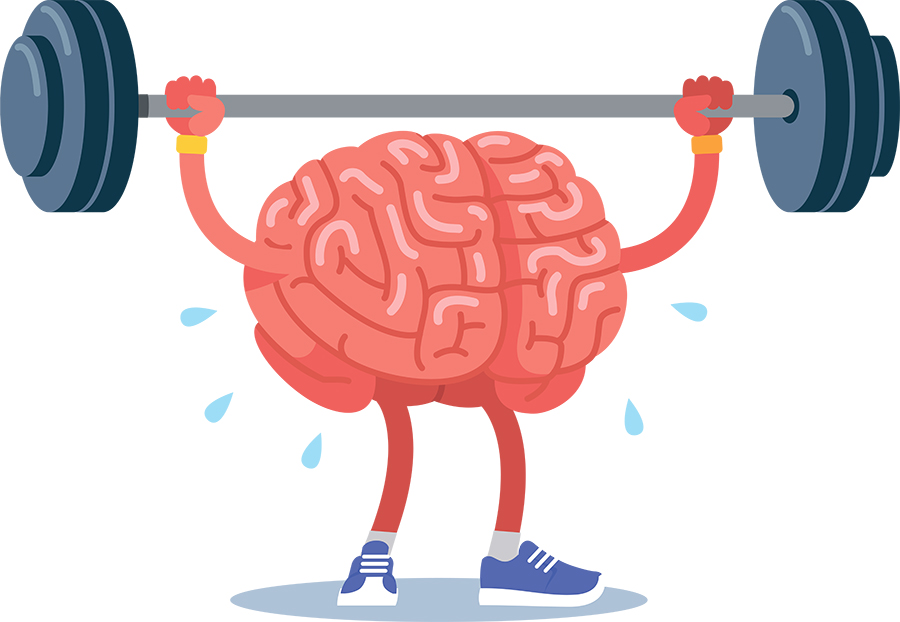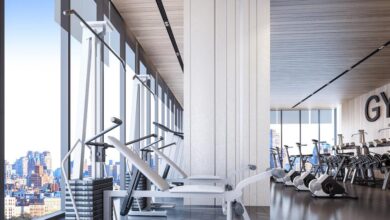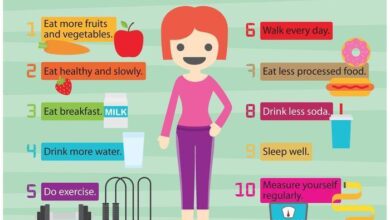
Exercise Boosts Creativity and Brain Function
Exercise Boosts Creativity and Brain Function: Ever feel like your mind needs a boost? It turns out, the answer might be as simple as lacing up your shoes and getting moving. Scientific research increasingly points to a powerful connection between physical activity and cognitive enhancement, revealing that exercise can do more than just strengthen our bodies – it can also sharpen our minds, unlock creativity, and even protect against age-related cognitive decline.
The science behind this connection is fascinating. Exercise triggers a cascade of positive changes in the brain, from increased blood flow and neurogenesis to the release of neurotrophic factors that promote brain cell growth and survival. This, in turn, enhances memory, attention, and executive function, laying the foundation for sharper thinking and greater creativity.
The Science Behind Exercise and Brain Function: Exercise Boosts Creativity And Brain Function
The idea that exercise is beneficial for our physical health is widely accepted. However, recent research has revealed a fascinating link between physical activity and our cognitive abilities, highlighting the profound impact exercise has on brain function. This article delves into the scientific mechanisms behind this relationship, exploring how exercise enhances brain health and cognitive performance.
The Physiological Mechanisms of Exercise and Brain Function
Exercise triggers a cascade of physiological changes that directly benefit the brain. These changes include increased blood flow, neurogenesis, and the release of neurotrophic factors, all of which contribute to enhanced brain function.
Increased Blood Flow
Exercise acts as a natural stimulant for blood circulation. When we engage in physical activity, our heart pumps faster, delivering oxygenated blood to the brain at an increased rate. This enhanced blood flow provides the brain with the essential nutrients and oxygen it needs to function optimally.
Neurogenesis
Exercise promotes the growth of new brain cells, a process known as neurogenesis. This process primarily occurs in the hippocampus, a brain region crucial for memory formation and learning. Studies have shown that exercise can increase the number of new neurons in the hippocampus, leading to improved memory function and cognitive flexibility.
Neurotrophic Factors
Exercise stimulates the production of neurotrophic factors, proteins that promote the survival, growth, and function of neurons. One such factor is brain-derived neurotrophic factor (BDNF), which plays a vital role in learning, memory, and cognitive flexibility. Exercise has been shown to increase BDNF levels in the brain, contributing to enhanced cognitive function.
Exercise and Specific Brain Regions
Specific brain regions are involved in various cognitive functions, and exercise has been shown to influence these regions, enhancing their performance.
The Hippocampus and Memory
The hippocampus is a key brain region involved in memory formation, consolidation, and retrieval. Exercise has been shown to increase the volume of the hippocampus and enhance its function, leading to improved memory performance.
The Prefrontal Cortex and Executive Function
The prefrontal cortex is responsible for executive functions, including planning, decision-making, working memory, and attention. Exercise has been shown to improve prefrontal cortex function, enhancing these executive functions and leading to better cognitive control and performance.
You know how they say exercise is good for your brain? Well, it’s true! It can actually boost creativity and improve your cognitive function. And if you’re looking for ways to make exercise a regular habit, check out your 7 day guide to forming better habits for weight loss.
It’s packed with tips to help you get moving and stay motivated. Once you’ve got your exercise routine down, you’ll be amazed at how much clearer your thinking becomes and how much easier it is to come up with new ideas.
Scientific Evidence of Exercise’s Benefits
Numerous scientific studies have demonstrated the positive effects of exercise on cognitive function.
Memory
Studies have shown that regular exercise can improve memory performance in both young and older adults. For example, a study published in the journal “Neurology” found that regular aerobic exercise was associated with a reduced risk of cognitive decline and dementia in older adults.
A clear mind fuels creativity, and that’s why I always prioritize exercise. It’s not just about physical health; it’s about mental sharpness, too. After a good workout, I’m ready to tackle any challenge, and that includes planning delicious and nutritious meals.
I find that quick and easy recipes like those found in diets and recipes for 35 minute dinners help me stay on track with my healthy eating goals. With less time spent in the kitchen, I have more time to focus on my creative endeavors, and that’s a win-win for my brain and my body!
Attention
Exercise has been shown to improve attention and focus. A study published in the journal “Psychonomic Bulletin & Review” found that a single session of moderate-intensity exercise improved attention and working memory in young adults.
Executive Function
Research has shown that exercise can enhance executive function, including planning, decision-making, and problem-solving. A study published in the journal “Frontiers in Human Neuroscience” found that regular exercise was associated with improved executive function in children and adolescents.
Exercise and Creativity
You might be surprised to learn that hitting the gym or going for a run can do more than just improve your physical health. It can also boost your creativity! Exercise has a remarkable ability to ignite your imagination and unlock new ideas.
This is because physical activity positively impacts various cognitive functions associated with creativity, such as divergent thinking, problem-solving, and idea generation. In this section, we’ll delve into the fascinating relationship between exercise and creativity, exploring how movement can spark your inner artist, inventor, and problem-solver.
Exercise Enhances Divergent Thinking
Divergent thinking is a crucial aspect of creativity, involving the ability to generate multiple solutions to a problem or explore different possibilities. Exercise, particularly aerobic exercise, has been shown to enhance divergent thinking. This is because exercise increases blood flow to the brain, delivering more oxygen and nutrients to the areas responsible for cognitive functions.
Moreover, exercise stimulates the production of brain-derived neurotrophic factor (BDNF), a protein that promotes the growth and survival of brain cells, including those involved in creativity.
- One study published in the journal “Neurobiology of Learning and Memory” found that participants who engaged in moderate-intensity aerobic exercise for 30 minutes three times a week showed significant improvements in divergent thinking compared to those who didn’t exercise.
- Another study published in the journal “Creativity Research Journal” revealed that even a single session of moderate-intensity exercise could enhance divergent thinking, suggesting that the benefits of exercise on creativity are immediate.
Exercise Improves Problem-Solving
Problem-solving often requires a fresh perspective and the ability to think outside the box. Exercise can help you achieve this by promoting cognitive flexibility and enhancing your ability to see connections between seemingly unrelated ideas. This is because exercise stimulates the prefrontal cortex, the part of the brain responsible for higher-level cognitive functions, including problem-solving.
- Research has shown that individuals who engage in regular exercise tend to be better at solving problems, particularly those that require creative solutions.
- Exercise can help you break free from rigid thinking patterns and approach problems from a more open-minded and innovative perspective.
Exercise Boosts Idea Generation
Idea generation is the foundation of creativity. Exercise can enhance idea generation by stimulating the hippocampus, the part of the brain involved in memory and learning. Exercise also promotes the release of dopamine, a neurotransmitter associated with motivation and reward, which can help you stay focused and engaged in the creative process.
It’s no secret that exercise can boost creativity and brain function, leading to sharper thinking and problem-solving skills. When you’re working from home, it can be easy to fall into a sedentary routine, which can impact your mental clarity.
To combat this, I highly recommend checking out this article on 10 ways to stay sane when working from home. By incorporating these tips into your daily routine, you can stay mentally sharp and maintain a healthy work-life balance, which in turn will further enhance your creativity and productivity.
- Studies have shown that individuals who engage in regular exercise tend to have more ideas and are more likely to generate novel and original concepts.
- Exercise can help you overcome mental blocks and tap into your creative potential, leading to a surge of new and innovative ideas.
Types of Exercise for Brain Boosting
You’ve learned about the amazing connection between exercise and brainpower, but how do you actually incorporate this knowledge into your life? The good news is that there are many different types of exercise that can benefit your brain.
Aerobic Exercise
Aerobic exercise, also known as cardio, is any activity that raises your heart rate and gets your blood pumping. It’s a fantastic way to improve your cognitive function, boost your mood, and even enhance your creativity. Examples of aerobic exercise include:
- Running
- Swimming
- Cycling
- Dancing
- Jumping rope
The benefits of aerobic exercise for your brain are numerous. It increases blood flow to the brain, delivering essential oxygen and nutrients. This improved blood flow can:
- Promote the growth of new brain cells (neurogenesis)
- Enhance the connections between brain cells (synaptogenesis)
- Improve memory and learning
- Reduce stress and anxiety
- Increase creativity and problem-solving skills
“Regular aerobic exercise can increase the volume of the hippocampus, a brain region crucial for memory and learning.”Dr. Arthur Kramer, a leading researcher in the field of exercise and cognition.
Strength Training
Strength training involves lifting weights or using resistance to build muscle mass and strength. While it’s primarily known for its physical benefits, it also offers significant advantages for your brain. Strength training can:
- Improve blood flow to the brain
- Boost cognitive function, including memory and attention
- Enhance brain plasticity, making your brain more adaptable and resilient to change
- Reduce the risk of age-related cognitive decline
“Strength training can help maintain brain volume and improve cognitive function in older adults.”Dr. Scott Small, a neuroscientist at Columbia University.
Mindfulness-Based Activities
Mindfulness-based activities, such as yoga, meditation, and tai chi, focus on bringing your attention to the present moment without judgment. These practices have been shown to have a positive impact on brain function and creativity.Mindfulness-based activities can:
- Reduce stress and anxiety
- Improve focus and attention
- Increase emotional regulation
- Promote creativity and problem-solving skills
“Mindfulness meditation can increase gray matter volume in the brain, which is associated with improved cognitive function.”Dr. Sara Lazar, a neuroscientist at Massachusetts General Hospital.
Exercise and Age-Related Cognitive Decline
As we age, our brains naturally undergo changes that can affect cognitive function. These changes can lead to a decline in memory, attention, and other cognitive abilities. However, research suggests that exercise can play a significant role in mitigating these age-related cognitive declines.
The Impact of Exercise on Cognitive Decline
Exercise has been shown to have a positive impact on brain health, particularly in older adults. Regular physical activity can help protect against cognitive decline and dementia by promoting neurogenesis (the growth of new brain cells), improving blood flow to the brain, and increasing the levels of neurotrophic factors, which support brain cell survival and function.
Benefits of Exercise for Individuals with Existing Cognitive Impairments
Exercise can also benefit individuals who already have cognitive impairments, such as mild cognitive impairment (MCI) or Alzheimer’s disease. Studies have shown that exercise can improve cognitive function, mood, and quality of life in individuals with these conditions.
Research Studies Demonstrating the Positive Impact of Exercise
Several research studies have demonstrated the positive impact of exercise on cognitive function in older adults. For example, a study published in the journal Neurology found that older adults who engaged in regular physical activity had a lower risk of developing dementia.
Another study, published in the journal JAMA Internal Medicine, found that exercise was associated with improved cognitive function and a reduced risk of cognitive decline in older adults with MCI.
Practical Tips for Incorporating Exercise into Daily Life
Integrating exercise into your daily routine can be challenging, but it’s well worth the effort. By making small, sustainable changes, you can reap the numerous benefits of regular physical activity, including improved brain function, enhanced creativity, and a healthier lifestyle.
Finding Time for Exercise
Finding time for exercise can be a major hurdle, especially with busy schedules. Here are some practical strategies to overcome this obstacle:
- Schedule it like an appointment:Treat your workout time as an important commitment, blocking it out in your calendar just like you would any other appointment. This helps you prioritize exercise and makes it less likely to be pushed aside.
- Break it down into smaller chunks:Instead of aiming for one long workout, break your exercise into shorter, more manageable sessions throughout the day. Even 10-15 minutes of activity can make a difference.
- Incorporate exercise into your commute:If possible, walk, bike, or take public transportation instead of driving. This can be a great way to sneak in some extra steps and get your heart rate up.
- Multitask:Combine exercise with other activities you enjoy, such as listening to podcasts or audiobooks while walking or running, or watching your favorite TV show while doing a home workout.
Making Exercise Enjoyable
Exercise should be something you look forward to, not a chore. Here are some tips for making it more enjoyable:
- Choose activities you enjoy:If you dislike running, don’t force yourself to do it. Explore different activities like dancing, swimming, hiking, or playing sports to find something you genuinely enjoy.
- Find a workout buddy:Having a friend to exercise with can provide motivation, accountability, and make the experience more fun.
- Listen to music or podcasts:Music can be a great motivator and help you stay focused during your workout. Podcasts can also provide entertainment and make the time fly by.
- Vary your routine:Keep things interesting by trying new activities or incorporating different exercises into your routine. This will prevent boredom and keep you motivated.
Overcoming Common Barriers, Exercise boosts creativity and brain function
Everyone faces challenges when trying to incorporate exercise into their lives. Here are some tips for overcoming common barriers:
- Start small:Don’t try to do too much too soon. Begin with a few short workouts and gradually increase the duration and intensity as you get fitter.
- Be patient and consistent:Results take time and consistency. Don’t get discouraged if you don’t see immediate changes. Keep at it and you will eventually see the benefits.
- Don’t be afraid to ask for help:If you’re struggling to find time or motivation, reach out to a friend, family member, or fitness professional for support.
- Focus on the benefits:Remember the positive impact exercise has on your physical and mental health. This can help you stay motivated when things get tough.
Choosing Exercises That Fit Your Preferences and Fitness Level
Finding the right exercises is crucial for making exercise a sustainable habit. Consider these factors:
- Your current fitness level:Start with activities that are appropriate for your current fitness level. If you’re new to exercise, begin with low-impact activities like walking or swimming.
- Your interests and preferences:Choose activities that you genuinely enjoy. This will make it more likely that you’ll stick with them in the long run.
- Your goals:Consider what you want to achieve with exercise. Are you looking to improve your cardiovascular health, build muscle, or lose weight? Choose activities that align with your goals.
- Availability and accessibility:Consider what exercises are readily available to you, taking into account factors like time, location, and cost.
Creating a Supportive Environment for Regular Physical Activity
A supportive environment can make a significant difference in your ability to stick to your exercise goals. Consider these strategies:
- Surround yourself with supportive people:Seek out friends, family, or workout buddies who encourage your exercise endeavors.
- Make your home exercise-friendly:Create a dedicated space for workouts, invest in equipment you enjoy, and remove distractions.
- Join a fitness class or group:Group fitness classes can provide motivation, accountability, and a sense of community.
- Reward yourself:Celebrate your achievements and milestones, no matter how small, to reinforce positive habits.
Wrap-Up

The benefits of exercise extend far beyond the physical realm, reaching into the very core of our cognitive abilities. By incorporating physical activity into our lives, we can unlock a world of mental possibilities, from sharper thinking to greater creativity.
Whether you’re a seasoned athlete or just starting your fitness journey, there’s a type of exercise that can help you achieve your cognitive goals. So, put on your sneakers, step outside, and let the power of movement transform your mind!






